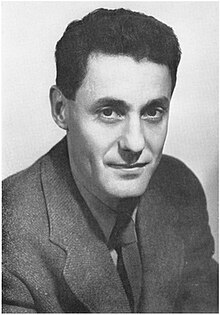Adam Parry | |
|---|---|
 | |
| Born | February 1, 1928 Paris, France |
| Died | June 6, 1971 (aged 43) Near Colmar, France |
| Nationality | American |
| Spouses | |
| Children | 3 |
| Relatives | Milman Parry (father) |
| Academic background | |
| Education | |
| Thesis | "Logos" and "Ergon" in Thucydides (1957) |
| Doctoral advisor | Eric Havelock |
| Influences | |
| Academic work | |
| Discipline | Classics |
| Sub-discipline | Virgilian studies |
| School or tradition | Harvard School |
| Institutions | |
| Influenced | |
Adam Milman Parry (February 1, 1928 – June 6, 1971) was an American classical scholar. He worked on Greek and Latin history literature, particularly the works of Thucydides, Homer and Virgil, and was a founding figure of the scholarly movement that became known as the Harvard School of criticism into Virgil's Aeneid.
The son of the Homeric scholar Milman Parry, Parry spent much of his early life in California following his father's early death in 1935. He subsequently studied at the University of California, Berkeley, at Harvard University and on a Fulbright Scholarship at the Sorbonne in Paris. While writing up his Harvard doctoral thesis, he took a post at Amherst College in Massachusetts, and moved between short-lived appointments at Harvard, Amherst, Yale University and University College London before settling at Yale in 1962. He was appointed full professor and department chair there in 1968, and remained at the university until his death.
Parry's work encompassed translations, critical annotations, historiography and literary criticism. His 1963 article "The Two Voices of Virgil's Aeneid" is regarded as a founding text of the Harvard School, an interpretative trend arguing that Virgil's poem contains a "private voice" drawing attention to the costs and horrors of Roman imperialism and the rule of the emperor Augustus. He opposed the Vietnam War and was known for his left-wing politics and bohemian lifestyle. He died in a motorcycle accident on June 6, 1971, alongside his second wife, Anne. In the following decades, his interpretation of the Aeneid became a dominant influence upon Virgilian scholarship.